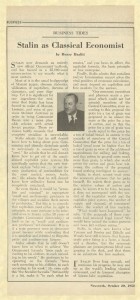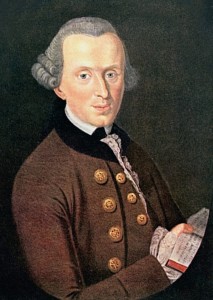Original Greek text : Diels; English translation : John Burnet (1892)
Click to open .pdf: Parmenides
Further text on Parmenides:
The Encyclopædia Britannica Eleventh Edition (1910–1911) : PARMENIDES OF ELEA (Velia) in Italy, Greek philosopher. According to Diogenes Laertius he was “in his prime” 504-500 B.C., and would thus seem to have been born about 539. Plato indeed (Parmenides, 127 B) makes Socrates see and hear Parmenides when the latter was about sixty-five years of age, in which case he cannot have been born before 519; but in the absence of evidence that any such meeting took place this may be regarded as one of Plato’s anachronisms. However this may be, Parmenides was a contemporary, probably a younger contemporary, of Heraclitus, with whom the first succession of physicists ended, while Empedocles and Anaxagoras, with whom the second succession of physicists began, were very much his juniors. Belonging, it is said, to a rich and distinguished family, Parmenides attached himself, at any rate for a time, to the aristocratic society or brotherhood which Pythagoras had established at Croton; and accordingly one part of his system, the physical part, is apparently Pythagorean. To Xenophanes, the founder of Eleaticism—whom he must have known, even if he was never in any strict sense of the word his disciple—Parmenides was, perhaps, more deeply indebted, as the theological speculations of that thinker unquestionably suggested to him the theory of Being and Not-Being, of the One and the Many, by which he sought to reconcile Ionian “monism,” or rather “henism,” with Italiote dualism. Tradition relates that Parmenides Lamed laws for the Eleates, who each year took an oath to observe them. Parmenides embodied his tenets in a short poem, called Nature, of which fragments, amounting in all to about 160 lines, have been preserved in the writings of Sextus Empiricus, Simplicius and others. It is traditionally divided into three parts—the “Proem,” “Truth” τὰ πρὸς ἀλήθειαν), and ” Opinion” (τὰ πρὸς δόξαν). In “Truth,” starting from the formula ” the Ent (or existent) is, the Nonent (or non-existent) is not,” Parmenides attempted to distinguish between the unity or universal element of nature and its variety or particularity, insisting upon the reality of its unity, which is therefore the object of knowledge, and upon the unreality of its variety, which is therefore the object, not of knowledge, but of opinion. In “Opinion ” he propounded a theory of the world of seeming and its development, pointing out however that, in accordance with the principles already laid down, these cosmological speculations do not pretend to anything more than probability. In spite of the contemptuous remarks of Cicero and Plutarch about Parmenides’s versification, Nature is not without literary merit. The introduction, though rugged, is forcible and picturesque; and the rest of the poem is written in a simple and effective style suitable to the subject. Proem.—In the “Proem” the poet describes his journey from darkness to light. Borne in a whirling chariot, and attended by the daughters of the sun, he reaches a temple sacred to an unnamed goddess (variously identified by the commentators with Nature, Wisdom or Themis), by whom the rest of the poem is spoken. He must learn all things, she tells him, both truth, which is certain, and human opinions; for, though in human opinions there can be no “true faith,” they must be studied notwithstanding for what they are worth. Truth.—”Truth” begins with the declaration of Parmenides’s principle in opposition to the principles of his predecessors. There are three ways of research, and three ways only. Of these, one asserts the non-existence of the existent and the existence of the non-existent [i.e. Thales, Anaximander and Anaximenes suppose the single element which they respectively postulate to be transformed into the various sorts of matter which they discover in the world around them, thus assuming the non-existence of that which is elemental and the existence of that which is non-elemental]; another, pursued by ” restless ” persons, whose ” road returns upon itself,” assumes that a thing “is and is not,” “is the same and not the same ” [an obvious reference, as Bernays points out in the Rheinisches Museum, vii. 114 seq., to Heraclitus, the philosopher of flux]. These are ways of error, because they confound existence and non-existence. In contrast to them the way of truth starts from the proposition that ” the Ent is, the Nonent is not.” On the strength of the fundamental distinction between the Ent and the Nonent, the goddess next announces certain characteristics of the former. The Ent is uncreated, for it cannot be derived either from the Ent or from the Nonent; it is imperishable, for it cannot pass into the Nonent; it is whole, indivisible, continuous, for nothing exists to break its continuity in space; it is unchangeable [for nothing exists to break its continuity in time]; it is perfect, for there is nothing which it can want; it never was, nor will be, but only is; it is evenly extended in every direction, and therefore a sphere, exactly balanced; it is identical with thought [i.e. it is the object, and the sole object, of thought as opposed to sensation, sensation being concerned with variety and change]. As then the Ent is one, invariable and immutable, all plurality, variety and mutation belong to the Nonent. Whence it follows that all things to which men attribute reality, generation and destruction, being and not-being, change of place, alteration of colour are no more than empty words. Opinion.—The investigation of the Ent [i.e. the existent unity, extended throughout space and enduring throughout time, which reason discovers beneath the variety and the mutability of things] being now complete, it remains in “Opinion” to describe the plurality of things, not as they are, for they are not, but as they seem to be. In the phenomenal world then, there are, it has been Thought [and Parmenides accepts the theory, which appears to be of Pythagorean origin], two primary elements—namely, fire, which is gentle, thin, homogeneous, and night, which is dark, thick, heavy. Of these elements [which, according to Aristotle, were, or rather were analogous to, the Ent and the Nonent respectively] all things consist, and from them they derive their several characteristics. The foundation for a cosmology having thus been laid in dualism, the poem went on to describe the generation of “earth and sun, and moon and air that is common to all, and the milky way, and furthest Olympus, and the glowing stars”; but the scanty fragments which have survived suffice only to show that Parmenides regarded the universe as a series of concentric rings or spheres composed of the two primary elements and of combinations of them, the whole system being directed by an unnamed goddess established at its centre. Next came a theory of animal development. This again was followed by a psychology, which made thought [as well as sensation, which was conceived to differ from thought only in respect of its object] depend upon the excess of the one or the other of the two constituent elements, fire and night. ” Such, opinion tells us, was the generation, such is the present existence, such will be the end, of those things to which men have given distinguishing names.” In the truism “the Ent is, the Nonent is not, ὄν ἔστι, μὴ ὄν οὐκ ἔστι, Parmenides breaks with his predecessors, the physicists on the Ionian succession. Asking themselves—What is the material universe, they had replied respectively—It is water, It is μεταξύ τι, It is air, It is fire. Thus, while their question meant, or ought to have meant, What is the single element which underlies the apparent plurality of the material world? their answers, Parmenides conceived, by attributing to the selected element various and varying qualities, reintroduced the plurality which the question sought to eliminate. If we would discover that which is common to all things at all times, we must, he submitted, exclude the differences of things, whether simultaneous or successive. Hence, whereas his predecessors had confounded that which is universally existent with that which is not universally existent, he proposed to distinguish carefully between that which is universally existent and that which is not universally existent, between ὄν and μὴ ὄν. The fundamental truism is the epigrammatic assertion of this distinction. In short, the single corporeal element of the Ionian physicists was, to borrow a phrase from Aristotle, a permanent οὐσία having πάθη which change; but they either neglected the πάθη or confounded them with the οὐσία. Parmenides sought to reduce the variety of nature “to a single material element; but he strictly discriminated the inconstant πάθη from the constant οὐσία, and, understanding by “existence” universal, invariable, immutable being; refused to attribute to the πάθη anything more than the semblance of existence. Having thus discriminated between the permanent unity of nature and its superficial plurality, Parmenides proceeded to the separate investigation of the Ent and the Nonent. The universality of the Ent, he conceived, necessarily carries with it certain characteristics. It is one; it is eternal; it is whole and continuous, both in time and in space; it is immovable and immutable; it is limited, but limited only by itself; it is evenly extended in every direction, and therefore spherical. These propositions having been reached, apart from particular experience, by reflection upon the fundamental principle, we have in them, Parmenides conceived, a body of information resting upon a firm basis and entitled to be called ” truth.” Further, the information thus obtained is the sum total of “truth”; for, as “existence” in the strict sense of the word cannot be attributed to anything besides the universal element, so nothing besides the universal element can properly be said to be “known.” If Parmenides’s poem had had “Being” for its subject it would doubtless have ended at this point. Its subject is, however, “Nature”; and nature, besides its unity, has also the semblance, if no more than the semblance, of plurality. Hence the theory of the unity of nature is necessarily followed by a theory of its seeming plurality, that is to say, of the variety and mutation of things. The theory of plurality cannot indeed pretend to the certainty of the theory of unity, being of necessity untrustworthy, because it is the partial and inconstant representation of that which is partial and inconstant in nature. But, as the material world includes, together with a real unity, the semblance of plurality, so the theory of the material world includes, together with the certain theory of the former, a probable theory of the latter. “Opinion” is then no mere excrescence; it is the necessary sequel to “Truth.” Thus, whereas the Ionians, confounding the unity and the plurality of the universe, had neglected plurality, and the Pythagoreans, contenting themselves with the reduction of the variety of nature to a duality or a series of dualities, had neglected unity, Parmenides, taking a hint from Xenophanes, made the antagonistic doctrines supply one another’s deficiencies; for, as Xenophanes in his theological system had recognized at once the unity of God and the plurality of things, so Parmenides in his system of nature recognized at once the rational unity of the Ent and the phenomenal plurality of the Nonent. The foregoing statement of Parmenides’s position differs from Zeller’s account of it in two important particulars. First, whereas it has been assumed above that Xenophanes was theologian rather than philosopher, whence it would seem to follow that the philosophical doctrine of unity originated, not with him, but with Parmenides, Zeller, supposing Xenophanes to have taught, not merely the unity of God, but also the unity of Being, assigns to Parmenides no more than an exacter conception of the doctrine of the unity of Being, the justification of that doctrine, and the denial of the plurality and the mutability of things. This view of the relations of Xenophanes and Parmenides is not borne out by their writings; and, though ancient authorities may be quoted in its favour, it would seem that in this case as in others, they have fallen into the easy mistake of confounding successive phases of doctrine, ” construing the utterances of the master in accordance with the principles of his scholar—the vague by the more definite, the simpler by the mere finished and elaborate theory ” (W. H. Thompson). Secondly, whereas it has been argued above that “Opinion” is necessarily included in the system, Zeller, supposing Parmenides to deny the Nonent even as a matter of opinion, regards that part of the poem which has opinion for its subject as no more than a revised and improved statement of the views of opponents, introduced in order that the reader, having before him the false doctrine as well as the true one, may be led the more certainly to embrace the latter. In the judgment of the present writer, Parmenides, while he denied the real existence of plurality, recognized its apparent existence, and consequently, however little value he might attach to opinion, was bound to take account of it : ” pour celui même qui nie l’existence réelle de la nature,” says Renouvier, ” il reste encore à faire une histoire naturelle de l’apparence et de l’illusion.” The teaching of Parmenides variously influenced both his immediate successors and subsequent thinkers. By his recognition of an apparent plurality supplementary to the real unity, he effected the transition from the ” monism ” or ” henism ” of the first physical succession to the “pluralism” of the second. While Empedocles and Democritus are careful to emphasize their dissent from “Truth,” it is obvious that “Opinion” is the basis of their cosmologies. The doctrine of the deceitfulness of “the undiscerning eye and the echoing ear” soon established itself, though the grounds upon which Empedocles, Anaxagoras and Democritus maintained it were not those which were alleged by Parmenides. Indirectly, through the dialectic of his pupil and friend Zeno and otherwise, the doctrine of the inadequacy of sensation led to the humanist movement, which for a time threatened to put an end to philosophical and scientific speculation. But the positive influence of Parmenides’s teaching was not yet exhausted. To say that the Platonism of Plato’s later years, the Platonism of the Parmenides, the Philebus and the Timaeus, is the philosophy of Parmenides enlarged and reconstituted, may perhaps seem paradoxical in the face of the severe criticism to which Eleaticism is subjected, not only in the Parmenides, but also in the Sophist. The criticism was, however, preparatory to a reconstruction. Thus may be explained the selection of an Eleatic stranger to be the chief speaker in the latter, and of Parmenides himself to take the lead in the former. In the Sophist criticism predominates over reconstruction, the Zenonian logic being turned against the Parmenides metaphysic in such a way as to show that both the one and the other need revision: see 241 D, 244 B seq., 257 B seq., 258 D. In particular, Plato taxes Parmenides with his inconsistency in attributing (as he certainly did) to the fundamental unity extension and sphericity, so that “the worshipped ὄν is after all a pitiful μὴ ὄν” (W. H. Thompson). In the Parmenides reconstruction predominates over criticism—the letter of Eleaticism being here represented by Zeno, its spirit, as Plato conceived it, by Parmenides. Not the least important of the results obtained in this dialogue is the discovery that, whereas the doctrine of the “one” and the “many” is suicidal and barren so long as the “solitary one” and the “indefinitely many” are absolutely separated (137 C seq. and 163 B seq.), it becomes consistent and fruitful as soon as a “definite plurality ” is interpolated between them (142 B seq., 157 B seq., 160 B seq.). In short, Parmenides was no idealist, but Plato recognized in him, and rightly, the precursor of idealism. BIBLIOGRAPHY.—The fragments have been skilfully edited by H. Diels, in Parmenides Lehrgedicht, griechisch u. deutsch (Berlin, 1897), with commentary; in Poetarum philosophorum fragmenta. with brief Latin notes, critical and interpretative (Berlin, 1901); and in Die Fragmente d. Vorsokratiker (Berlin, 2nd ed., 1906), with German translation); and Diels’ text is reproduced with a helpful Latin commentary in Ritter and Preller’s Historia philosophiae graecae (8th ed., revised by E. Wellmann, Gotha, 1898). The philosophical system is expounded and discussed by E. Zeller, D. Philosophie d. Griechen (5th ed., Leipzig, 1892; Eng. trans., London, 1881); by T. Gomperz, Griechische Denker (Leipzig, 1896; Eng. trans., London, 1901); and by J. Burnet, Early Greek Philosophy (London, 1908). For the cosmology, see A. B. Krische, D. theologischen Lehren d. griechischen Denker (Gottingen, 1840). On the relations of Eleaticism and Platonism, see W. H. Thompson, “On Plato’s Sophist” in the Journal of Philology viii. 303 seq. For other texts, translations, commentaries and monographs see the excellent bibliography contained in the Grundriss d. Geschichte d. Philosophie of Überweg and Heinze 10th ed., Berlin, 1909; Eng. Trans., London, 1880). (H. JA.)




